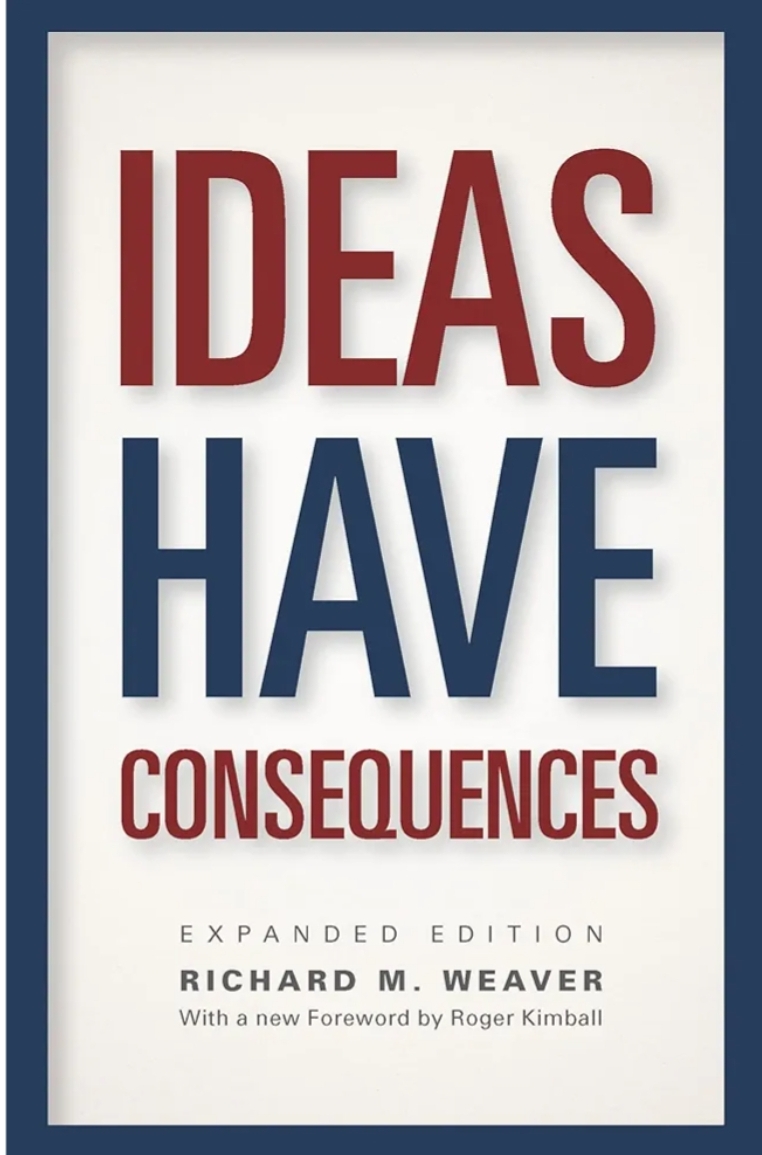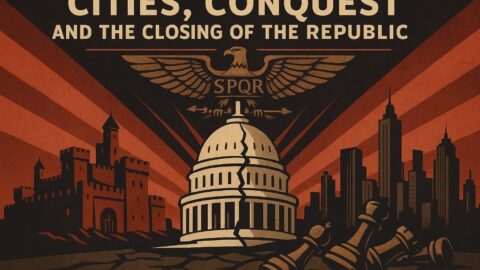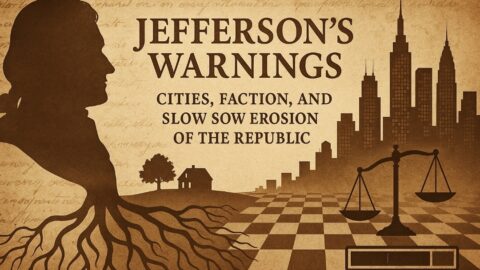Richard M. Weaver’s Ideas Have Consequences (originally published in 1948) is a foundational conservative intellectual critique of modernity. The book argues that the decline of Western civilization is due to the erosion of absolute truth and objective values, which has led to moral relativism, cultural decay, and the breakdown of tradition. The expanded edition includes additional commentary and contextual analysis that enhances Weaver’s arguments for contemporary readers.
Key Themes and Arguments
The Decline of Objective Truth
- Weaver argues that nominalism, the philosophical view that universals (truth, justice, beauty) are merely names rather than real entities, led to the collapse of objective standards in the Western world.
- He traces this decline back to the 14th century and the rise of William of Ockham’s philosophy, which rejected inherent meaning in things.
- The rejection of absolute truth has resulted in subjectivism, relativism, and moral decay in modern society.
The Consequences of Modern Liberalism
- Weaver criticizes scientific materialism, which prioritizes empirical data over metaphysical or moral principles.
- He sees modern liberalism as disconnected from human nature, relying too heavily on rationalism, technology, and utilitarianism while neglecting spiritual and ethical dimensions.
- This has led to hedonism, consumerism, and the loss of meaning in human life.
The Breakdown of Language and Thought
- Language, Weaver argues, has been corrupted by propaganda, mass media, and emotional manipulation, making meaningful discourse difficult.
- Words have lost their depth and become tools for persuasion rather than for truth.
- The loss of precision in language has contributed to intellectual decline and mass confusion.
The Deterioration of Culture and Art
- Traditional art, literature, and music were once rooted in higher ideals and a sense of beauty and order.
- The rise of mass entertainment, commercialism, and “low culture” has debased artistic expression, replacing it with sensationalism and superficiality.
- Culture has shifted from discipline and refinement to immediate gratification and vulgarity.
Individualism vs. Community
- Weaver critiques the modern obsession with radical individualism, which has weakened social cohesion and personal responsibility.
- Traditional family structures, religious institutions, and local communities once provided meaning and structure, but modernity has eroded these bonds.
- The modern individual is often isolated, rootless, and disconnected from history and tradition.
The Decline of Heroism and Virtue
- Chivalry, duty, and honor have been replaced by cynicism, entitlement, and victimhood.
- Society no longer rewards virtue, sacrifice, and excellence, instead promoting mediocrity and self-indulgence.
- Weaver warns that without a return to higher moral standards, society will continue to decay.
The Role of Technology in Dehumanization
- Technological advancements, while useful, have made people mechanistic and detached from nature.
- Machines have replaced craftsmanship, automation has reduced personal responsibility, and convenience has weakened character.
- Weaver sees unchecked technological growth as dangerous without moral and philosophical restraint.
Weaver’s Proposed Solutions
Restoration of Absolute Truth and Higher Values
- Society must reaffirm objective moral and philosophical truths.
- Education should emphasize classical philosophy, theology, and ethics rather than relativistic ideologies.
Revival of Traditional Culture and the Arts
- Art should reflect order, beauty, and spiritual meaning rather than nihilism or materialism.
- Literature and music should uplift the soul rather than cater to base instincts.
Strengthening of Families, Communities, and Institutions
- The family unit must be preserved, as it is the foundation of civilization.
- Communities should reject mass homogenization and embrace local traditions and customs.
Encouragement of Responsibility and Virtue
- Society should celebrate heroism, discipline, and sacrifice instead of promoting entitlement.
- People must take responsibility for their moral and intellectual development.
Reassessment of Technology’s Role
- Technology should be used wisely, ensuring it serves humanity rather than controlling it.
- Personal relationships and face-to-face interactions must be prioritized over digital distractions.
Expanded Edition Additions
- The expanded edition includes new essays, historical context, and reflections on Weaver’s work.
- It highlights how his predictions have played out in modern society, particularly in postmodernism, mass media, and cultural fragmentation.
- Scholars provide additional insights on how to apply Weaver’s philosophy today.
Final Thoughts: Why Ideas Have Consequences Matters Today
- Weaver’s book remains highly relevant, especially in debates about truth, culture, politics, and morality.
- It challenges modern assumptions about progress, individualism, and technology, urging a return to timeless values and higher ideals.
- Whether one agrees or disagrees, the book forces deep reflection on the direction of Western civilization.






